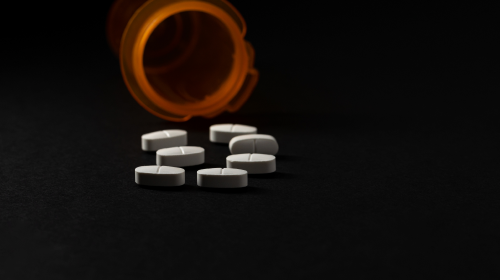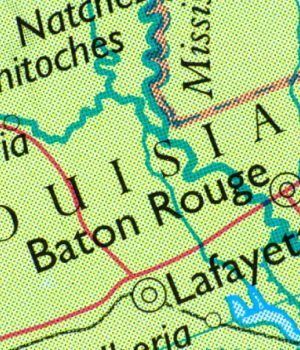Expert Insights
I support spreading the message of addiction recovery through any means possible. However, I particularly enjoy it when the message is spread in a creative way, and what could be more creative than art? A Baton Rouge art gallery recently announced an exhibit they’re presenting that deals with exactly that: art and addiction. Ben Peabody, a local artist, has put together a free viewing and reception of his art for the entire Baton Rouge community to come out and view. And he hopes the artwork will spark discussion about recovery. The powerful exhibit is filled with important messages that are clear to see within his art. And these messages are beautifully delivered within a vibrant carnival setting, according to the West Baton Rouge Museum. I am very excited to see these works of art and the impact they can make on the community.
~ Rita Milios
How Expensive is Drug Rehab in Baton Rouge?
 Treatment in Baton Rouge can range from very low-cost to a large expense, depending on what type of services you need and how long you’ll be in treatment. Another cost factor is locality—areas that have a lower cost of living also usually have a lower average medical cost as well as overall cost for necessities like gas and groceries.
Treatment in Baton Rouge can range from very low-cost to a large expense, depending on what type of services you need and how long you’ll be in treatment. Another cost factor is locality—areas that have a lower cost of living also usually have a lower average medical cost as well as overall cost for necessities like gas and groceries.
Are There Low-Cost and Free Drug Rehab Centers in Baton Rouge?
State-funded rehabs provide inpatient and outpatient programming to people struggling with addiction in Louisiana who can’t afford treatment. They receive money from the government and non-profit organizations to offer financial assistance programs such as sliding-fee scales and rehab scholarships.
To get into a state-funded rehab, you’ll need to speak with a social services professional in your area that can provide you a referral, possibly after providing an assessment, though that may be done in the rehab instead as well.
Do Medicare and Medicaid Cover Alcohol and Drug Rehab?
Most rehab services are typically covered under the umbrella of health insurance, provided it meets the definition of “medically necessary.” This includes the cost of individual therapy with a psychiatrist, any needed medications, nursing services, and hospital services and supplies for both Medicare and Medicaid.
Medicaid is a low-income health insurance program for people that live at or below federal poverty standards. Medicaid does not pay for things like private rooms, personal needs, or private nursing, nor does Medicare. Medicare, on the other hand, is a health insurance program for people over the age of 65 or who are disabled. Medicaid does not typically charge copayments, whereas Medicare might and does for inpatient rehab.3
Medicare requires a deductible to be paid to enter into rehab, and if you have to stay longer than 60 days, you would be responsible for paying a daily co-insurance which doubles when you hit 90 days of residency. This coverage includes meals, rehab services, and a semi-private room.
Does Private Insurance Cover Addiction Treatment?
Private health insurance companies must pay for medically necessary treatments, such as medication, clinical services, and therapy. The fee for the cost of a shared or private suite and amenities like room service and housekeeping are generally not covered by private health insurance, though they might be.
While services are generally covered by private insurance, there may be myriad fees associated, especially with inpatient rehab programs. You may have copayments and deductibles for care, as well as daily fees if you are living in a center for rehab.
Every health insurance policy has a different set of covered services, in-network providers, and fee schedules. The best way to determine exactly what you qualify for and how much it may cost you is to call the number on the back of your health insurance card.
How Does Baton Rouge Compare in Alcohol and Drug Use?
Baton Rouge, the capital of Louisiana, is seated in East Baton Rouge Parish and is home to a bevy of popular natural attractions, sports centers, and historical sites. It also offers many addiction treatment programs that enable people to change their lives. If you are looking for an alcohol or drug rehab in Baton Rouge, you have numerous options, including luxury rehabs, Christian rehabs, and state-funded and free rehabs.
Agencies across the state and country keep track of how many people, unfortunately, succumb to drugs or alcohol each year. Here are some statistics found in CDC and police reports regarding Louisiana:1,2

Between 2018 and 2020, drug overdoses increased by 126% in East Baton Rouge Parish.

From 2018 to 2020, alcohol-related deaths rose 37.5% in East Baton Rouge Parish.

Alcohol-related liver disease deaths decreased 18% between 2019 and 2020.

Nearly 40% of reported drug overdoses in 2018 involved opiates.
If you’re among the countless people across the country affected by addiction, you can find help with a Baton Rouge alcohol rehab or drug rehab.
Drug and Alcohol Laws in Louisiana
Louisiana has various laws and statutes in place to deal with drug and alcohol misuse. Some policies are designed to guide law enforcement through the processing of those with addiction disorders, and others to ensure funds are routed to appropriate programs to ensure people who need treatment can access it.
Louisiana Drug Policy: The Louisiana Drug Policy is a series of regulations designed to reduce underage drinking and prescription drug use, strengthen community prevention efforts, and leverage statewide funds for treatment and prevention.6
Family and Medical Leave Act (FMLA): Under federal FMLA regulations, companies with more than 50 employees must provide at least 12 weeks of unpaid time off to facilitate treatment for any medical issue, such as going to rehab. Most companies in Louisiana are bound to this rule, but you can speak directly with your employer to find out if they meet exemption qualifications.
Popular Alcohol and Drug Rehab Centers in Baton Rouge
Dozens of rehab centers in the Baton Rouge area can help you on your journey. In your research to find the best alcohol or drug rehab in Baton Rouge, you may have searched “drug rehabs near me” or “alcohol rehabs near me.” The area is home to several popular drug and alcohol rehab centers.
Serenity Treatment Center
Serenity Treatment Center has several programs to help people fight addiction, including a 30-day inpatient rehab program and an intensive outpatient program (IOP). The facility utilizes a 12-step approach to individual, group, and family therapy. Serenity also has a staff of nutritionists to offer medical nutrition therapy (MNT) to clients.
AppleGate Recovery
AppleGate Recovery offers outpatient medication-assisted treatment (MAT) for opiate use disorder (OUD). Its treatment options include buprenorphine and suboxone treatments in combination with individual and group talk therapy. The facility accepts some health insurance plans, namely Blue Cross Blue Shield Louisiana, Cigna, Humana, and Optum, as well as self-pay.
Eugene and Oleander Addiction Treatment Clinic
Eugene and Oleander Addiction Treatment Clinic is an opiate recovery clinic with medication-assisted treatment (MAT) programs for people in Baton Rouge. Its outpatient program allows for convenience and confidentiality, with refills by phone and on-site drug testing available.
Woodlake Addiction Recovery Center
At Woodlake Addiction Recovery Center, people struggling with addiction can engage in a wide range of outpatient programs across the state, including medical detox at the Baton Rouge clinic. The facility has six residential programs across Louisiana as well, including gender-segregated facilities and dual diagnosis programs.
What is Drug Rehab Like?
Embarking on the road to recovery is a lot easier when you know the different steps you’ll encounter. Treatment processes vary, as everyone’s journey is different, but everyone will go through several steps when seeking rehab.
The compilation of all the different modalities for treatment based on the recovery stage is called the continuum of care. The higher your care needs are initially, the higher level of care you’ll need, but as you progress through your recovery, you’ll be able to step down in your needs and place in the continuum of care, such as progressing from residential rehab to a partial hospitalization program (PHP) or intensive outpatient program (IOP).
Receiving an Intake Evaluation
The first step in a treatment program is to undergo a drug and alcohol addiction assessment. This must be done by a clinical professional and can take 90 minutes to two hours.4 The process involves interview-style questions as well as simpler questions that can be quantified using a rating system, such as what your pain levels or degree of cravings are at certain points in the day. The point of this assessment is to determine what level of care is needed and what the appropriate treatments would be in your case.
Medical Detox Services
To begin your recovery from addiction, you’ll have to undergo some form of detox period where you sustain from using the addictive substance and can reach a clear state of mind and physicality. Depending on the substance that you use, how much you use it, and for how long you have used it, you might need to utilize a medical detox program to help you through the physical symptoms of withdrawal.
Medical detox is used to facilitate a healthy entry into rehab services, including a safe and humane medically supervised withdrawal from addictive substances.5 Research shows that people who engage in the recommended detox protocol for their SUD have a better chance of complete recovery, especially when detox is partnered with rehab programming and aftercare services.
Inpatient Drug Rehab in Baton Rouge
Inpatient rehab, also known as residential rehabilitation, is a program in which you live in a facility for the duration of your treatment. These programs can last anywhere from a month to a year or longer, depending on your needs, preferences, and ability to pay for long-term care. These programs are great for people who need to completely remove themselves from their life situation that was leading to drug or alcohol use and need help creating a healthy lifestyle.
A residential Louisiana drug rehab program includes daily meals, a secure place to live, and a structured schedule in addition to the evidence-based and alternative therapies designed to treat addiction. This includes individual and group therapy, with modalities meant to help you learn resilience, self-esteem, and life skills to help you succeed post-rehab.
Step-Down Care
After you’ve completed inpatient rehab, especially in programs that are only a month-long, you may benefit by participating in a step-down care program. These programs offer the same evidence-based and alternative therapies as in inpatient rehab, except you get to leave the facility after your daily treatment and go about your other responsibilities.
Outpatient care has the following levels:
Standard outpatient treatment: require the lowest time commitment, with only a single visit needed per week and a monthly telephonic visit with your clinician. SOPs help build upon the life and relational skills attained in rehab and provide just enough structure and encouragement to help you maintain your sobriety.
Intensive outpatient programs (IOPs): are the next level down in outpatient care, requiring only nine hours per week of in-person therapy at minimum, with the ability to engage in therapy only two or three days per week. This type of program also requires a regular telephone conversation with your therapist to ensure the ongoing efficiency of your treatments.
Partial hospitalization programs (PHPs): offer daily therapy and medical supervision, as well as any needed medications. Most programs run five days a week, though some also operate on the weekends. This is helpful for when you have had a long-term addiction and the process to change your behaviors may take a little longer, or as an alternative to inpatient rehab altogether if you have a strong support system.
Aftercare and Relapse Prevention
Most rehab programs include some level of aftercare, which is less regular programming, including individual and group therapy, such as support groups. Some popular aftercare programs include 12-step recovery programs like AA or NA, and SMART Recovery, which are similar to 12-step programs but without the faith-based rhetoric.
If you want to engage in a more intensive form of aftercare to help secure relapse prevention, think about moving into a sober living home. These structures are meant to uphold sobriety by requiring residents to refrain from any drug or alcohol use. There are programs for certain populations, such as sober homes for men or sober homes for women with children.
Recovery from addiction is a lifelong process. Even if a person relapses, it doesn’t mean that they’ve failed. However, there needs to be a better support system in place that involves aftercare therapy.
What to Consider When Choosing the Right Baton Rouge Rehab for You
When looking for the right rehab center, the best option for you will have multiple variables. If the location is important to you, make sure to research the area thoroughly. You’ll also want to look into the environment inside a potential rehab facility.
Find out what treatment approaches are offered, such as prayer groups if you’re interested in a faith-based rehab, and what specialties they offer, such as dual diagnosis treatment. Each treatment center also has its program policies and rules, such as what items you can bring with you, when you can make phone calls, and when people can visit you.
What to Look for in a Quality Drug and Alcohol Rehab
When searching for a rehab program that can help you reach full recovery, you should consider a number of factors.
Access to Specialized Care
Depending on your needs, you might benefit from a specialized care program. For example, if you’re a member of the LGBTQ+ community, you might get better help at a facility that specializes in that demographic. This type of facility would be able to provide trauma-informed therapy that focuses on the unique problems faced by members of the community, such as internalized homophobia.
People with mental health disorders and substance abuse disorder will need to look for a specialized dual diagnosis rehab. These centers can manage the complex dynamics between both disorders and offer the appropriate treatments with the help of licensed mental health professionals.
Aftercare Planning
Some facilities offer an alumni program, in which graduated clients are encouraged to interact well after recovery and can participate in support groups and social events together. Others maintain ongoing support groups that are for current clients, graduates, and their family members. Whichever the case may be for your chosen rehab, make sure that they have structures in place to support you after you complete the program.
Financing Options
Unless you have amazing health insurance coverage and the ability to self-pay for any gaps in care, then you’ll probably be interested in alternative financing options. Many Baton Rouge drug rehabs offer financial assistance, such as through sliding-fee scales, payment plans, or by offering rehab scholarships to help pay for the care of those with no other options.
Nonprofit and governmental agencies provide grants to alcohol and drug rehabs in Louisiana to offer people scholarships, such as SAMHSA’s block grant, so there may be a high chance that you can find this type of assistance nearby. To find out if the rehab you’re interested in has financial assistance, you can look in the “admissions” section of their website to see what type of help they offer and what insurance groups they accept, or you can call and ask to speak with them about their payment options.
Treatment Options
Family involvement can be vital to a full recovery, considering the benefit a lifelong support system can provide someone struggling with and after addiction. Unfortunately, it’s extremely common for people in addiction to have strife with their family, and they might not be a good support system in that dynamic. A quality rehab program will include family therapy in their programming, giving your nuclear and extended family members the chance to sit in on therapy sessions, either in-person or over the phone.
Evidence-based practices and therapies include talk therapy, which can be done in a group or individually, with practices such as CBT (cognitive behavioral therapy) or DBT (dialectical behavioral therapy) to help you learn to process cravings and negative thoughts differently. More alternative therapies can also be particularly helpful, such as the yoga and acupuncture therapy often found in holistic rehab.
State-of-the-art therapies are available in some rehab centers, such as luxury or executive rehabs. These can include CT-imagery-guided therapy, where scans of your brain are used to distinguish what areas of your brain have been impacted by addiction and to better determine an appropriate treatment plan. There are also unique therapies in faith-based rehabs, such as pastoral counseling and prayer groups.
Should I Travel to Baton Rouge for Alcohol and Drug Treatment?
 If you’re considering traveling for rehab, Louisiana might be a great option for you—particularly if your health insurance plan covers treatment in the area. Other reasons to consider moving for rehab would be if you have a stable and supportive network of friends and family in the region or if your career or education would benefit from a move to the area.
If you’re considering traveling for rehab, Louisiana might be a great option for you—particularly if your health insurance plan covers treatment in the area. Other reasons to consider moving for rehab would be if you have a stable and supportive network of friends and family in the region or if your career or education would benefit from a move to the area.
One of the most important aspects is your support system, meaning what rehab program in the area you have to help as well as your network including your friends and family. Is the location you’re considering going to be beneficial to your recovery, and would staying close to home be detrimental? Another important factor is the area you move to, so make sure to learn about the different neighborhoods you’re considering moving to for treatment.
Neighborhoods in Baton Rouge to Consider for Treatment
Spanish town, on the northern edge of downtown Baton Rouge, is a residential area that’s near government districts and home to gorgeous architecture and a local farmer’s market. The area has numerous shopping and dining locations as well, including several grocery stores.
If you want a highly-walkable neighborhood, check out the Garden District. It’s close to outdoor recreation sites, including the lake, golf courses, walking and running paths, and parks for families with kids and fur babies. Nearby Southdowns is also a popular residential area, with plenty of places to explore in your downtime and needed shopping, such as a Trader Joe’s and a Petco.
Students might benefit from living in the Mid City and Capital Heights area, a designated cultural art center where the LSU campus, the Maker’s Market, and a wealth of affordable housing options are.
Resources
- Center for Disease Control. (2022). CDC Wonder.
- United States Drug Enforcement Administration. (2022). Operation Engage Baton Rouge.
- Medicare.gov. (2022). Inpatient Rehabilitation Care.
- Substance Abuse and Mental Health Services Administration. (1997). A Guide to Substance Abuse Services for Primary Care Clinicians. Chapter 4—Assessment.
- Substance Abuse and Mental Health Services Administration. (2006). Treatment Improvement Protocol (TIP) Series, No. 45.: 1 Overview, Essential Concepts, and Definitions in Detoxification.
- Louisiana Office of the Governor. (2022). Drug Policy



